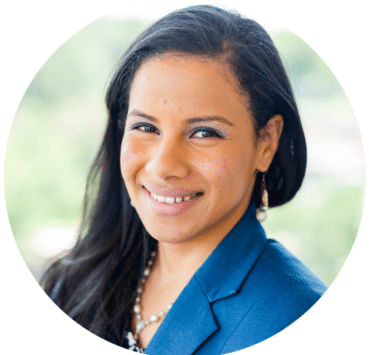|
Getting your Trinity Audio player ready...
|
From the separation of migrant children from their families under the Trump Administration to the continued use of inhumane ICE detention centers under Biden, safe immigration (amidst a backdrop of human rights abuses) continues to be a pressing issue for Latinx families across the Americas.
But these issues aren’t just localized at the US border, they’re also occurring at Mexico’s southern border in the state of Chiapas with migrants and refugees from across Central and South America. Many of them are fleeing danger from rising political tensions in their home countries as more authoritarian regimes threaten civil rights.
Political Uncertainty and Hope
As protests for better pay, improved living and health conditions, and a more coherent response to restrictive pandemic measures erupted all over Latin America, governments responded by attacking the press, interfering with judicial independence, and murdering protesters. In 2020, under President Jair Bolsonaro, Brazilian police killed more than 6,400 people alone—80 percent of whom were Black.
Families in these countries were presented with an impossible choice: either stay in these worsening conditions or make a dangerous trek to the US in hopes of a brighter future. Now, many have been held up at the Mexican border.
“Outsourcing US immigration enforcement to Mexico has led to serious abuses and forced hundreds of thousands to wait in appalling conditions to seek protection,” says Tyler Mattiace, a researcher at Human Rights Watch.
While US immigration rhetoric tends to vary greatly depending on the administration in charge, taking a macro, holistic, and historically rooted snapshot at US policy towards Latin America over the last several decades will shed some much-needed light on the root cause.
In late 2021, Mexican President Andrés Manuel López Obrador reinforced his commitment to helping the US with immigration, while also stating, “This can’t go on forever; we have to get to the bottom of the issue and that means investing in the development of poor countries.”
But why are our countries poor in the first place?
The Creation of Banana Republics
In the early 1800s, three centuries of colonial rule finally came to an end for most Latin American countries, yet the systems’ effects persist to this day. Under colonization, Latin American countries were not allowed to produce self-sustaining multicrops that would have created a balanced and thriving economy.
Instead, they were forced to mass produce monoculture crops for their colonizers—bananas in Colombia, sugarcane in Cuba, petroleum in Venezuela, and rubber and coffee in Brazil. These countries experienced widespread mineral and resource extraction at little benefit to them.
As these Latin American colonies gained political independence and became sovereign nations, there was still an economic void that left them vulnerable to exploitation. American and European corporations swooped in to capitalize on underdeveloped countries and continue a legacy of exploitation in the form of neoliberal policies.
US Interference in Latin American Autonomy
The Chile of 1970 saw the democratic election of Salvador Allende as president, and with him a movement that sought to reform agrarian society to work for the people, recognize the rights of workers to run factories collectively, and regain monetary autonomy, all through a new constitution. But the US did not allow it.
The Nixon Administration destabilized the Chilean economy with the launch of Operation Condor—a plot that included sinking the world price of copper (Chile’s largest export), putting pressure on the World Bank to stop loans to Chile, and spending $8 million to fund anti-Allende propaganda.
Just three years after President Allende’s election, General Augusto Pinochet led a military coup backed by the CIA that resulted in the Allende’s assassination and the torture and murder of over three hundred of his supporters.
Pinochet installed himself as dictator—a reign that lasted for nearly twenty years. Immediately following his coup, the US sent economic and military aid, influenced the World Bank to end its ban on Chilean loans, and sent Chilean economists from the University of Chicago that were trained in neoliberal policies to take high-ranking positions in Pinochet’s government.
This is just one of the many instances of US interference with Latin American autonomy to create better governments and economic systems that work for themselves and has played out numerous times across the twentieth and twenty-first centuries.
The Aftermath & the Present
Attempts to democratically improve living and working conditions in Latin American countries have been continually thwarted. Even before the pandemic, Venezuela was experiencing a humanitarian crisis that saw one in three citizens living with food insecurity.
As such, many families chose to seek better conditions by migrating to the US. According to Homeland Security Secretary Alejandro Mayorkas, the United States is “on pace to encounter more individuals on the southwest border than we have in the last twenty years.”
These issues across the Latin American world don’t just affect the migrants fleeing these conditions, but also their kin already residing in the US. Not only have families been separated by political diaspora, but many have made it here without going through the documentation process in fear of being turned away or detained.
This, in turn, further perpetuates political uncertainty even once inside the US and creates a hostile atmosphere of employment and racial discrimination that extends the shroud of fear and danger these migrants hoped to leave behind.
If we hope to make any meaningful change on this front in the US, we must begin by acknowledging the dark history that created Latin American crises in the first place, advocate for international policy that helps Latin American nations determine their own political future, and demand justice for migrants through a humane, sensible, and efficient immigration policy.
The views expressed in this article are those of the author and do not necessarily reflect the position of Hispanic Executive or Guerrero Media.
Jennifer Borrero is the daughter of Colombian-Mexican immigrants and is a social impact advocate based in Los Angeles, CA. In 2015 Jennifer began working on international human rights issues in Nicaragua, since then, she has specialized in advocacy for housing and education across the globe. From Nicaragua to the Middle East and domestically, she has run programs in the private and public sectors that focus on creating social change. She tells stories of her experience working on international human rights issues and lessons learned along the way.
Jennifer is currently a member of the Housing and Homelessness Council for Urban Land Institute where she advocates for sustainable housing initiatives. She is also the Vice President of Advocacy for the United Nations Association Los Angeles Chapter and a Global Goals Ambassador for the United Nations Association.
She holds a Masters degree in Healthcare Administration. You can find her running, baking, and surfing in her free time.

